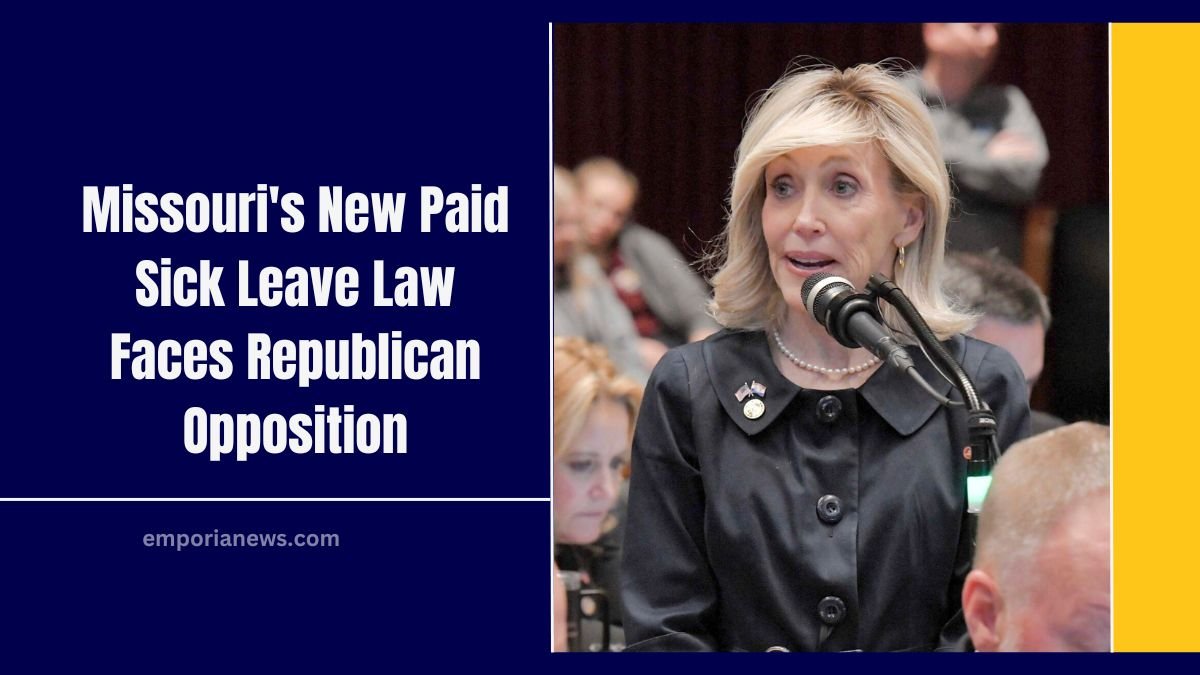In November 2024, Missouri voters approved Proposition A, introducing mandatory paid sick leave and incrementally increasing the state’s minimum wage.
However, Republican lawmakers are now challenging these provisions, citing concerns over potential misuse and economic impact.
Overview of Proposition A
Proposition A mandates that employers with annual gross receipts exceeding $500,000 provide paid sick leave to their employees.
Employees accrue one hour of paid sick leave for every 30 hours worked. Employers with fewer than 15 employees must allow workers to use up to 40 hours of paid sick leave annually, while larger employers are required to permit up to 56 hours.
The law also stipulates that unused sick leave can carry over, with a cap of 80 hours. Additionally, the proposition raises the state minimum wage to $13.75 per hour as of January 1, 2025, with a planned increase to $15 per hour by January 1, 2026, followed by adjustments for inflation.
Republican Efforts to Repeal and Modify the Law
Leading the opposition, Republican State Representative Sherri Gallick has introduced House Bill 567, aiming to repeal the paid sick leave requirement, delay the $15 minimum wage increase to 2028, and remove the provision that ties future wage hikes to inflation.
During a House Commerce Committee hearing, Gallick expressed concerns that the mandated sick leave could be exploited by employees, stating that employers are vulnerable to lawsuits if they inquire about the reasons for an employee’s absence.
Democratic State Representative Steve Butz countered these claims, arguing that Missouri’s at-will employment laws already allow employers to dismiss underperforming employees without cause.
Butz suggested that those likely to abuse sick leave policies are already doing so and can be terminated under existing laws.
Business Community’s Legal Challenge
Several business advocacy groups, including the Missouri Chamber of Commerce and Industry, have filed a lawsuit seeking to invalidate Proposition A.
The lawsuit contends that the proposition violates the state constitution’s single-subject rule by combining paid sick leave and minimum wage increases into one measure. The Missouri Supreme Court is scheduled to hear arguments on this case on March 12, 2025.
Implications for Employers and Employees
The ongoing legislative and legal challenges have created uncertainty for both employers and employees in Missouri.
Employers are advised to prepare for the possibility that the paid sick leave requirements will take effect on May 1, 2025, as originally planned.
This preparation includes updating payroll systems to track accrued sick leave, revising employee handbooks to reflect the new policies, and ensuring compliance with notice and record-keeping requirements.
Key Provisions of Proposition A
The table below summarizes the main components of Proposition A:
| Provision | Details |
|---|---|
| Paid Sick Leave Accrual | Employees earn 1 hour of paid sick leave for every 30 hours worked. |
| Annual Usage Limits | – Employers with <15 employees: Up to 40 hours/year – Employers with ≥15 employees: Up to 56 hours/year |
| Carryover Cap | Unused sick leave can carry over, up to 80 hours. |
| Minimum Wage Increase | – $13.75/hour starting Jan 1, 2025 – $15/hour starting Jan 1, 2026 – Adjustments for inflation thereafter |
| Employer Coverage | Applies to employers with annual gross receipts >$500,000. |
| Employee Eligibility | All employees, excluding those under fixed-term contracts. |
| Qualifying Reasons for Leave | – Personal or family illness, injury, or health condition – Preventive medical care – Closure of workplace or child’s school due to public health emergency – Needs related to domestic violence, sexual assault, or stalking |
As Missouri navigates the complexities of implementing Proposition A, the outcome of the legislative debates and legal proceedings will significantly impact the state’s workforce and business environment.
Employers and employees alike should stay informed about these developments to ensure compliance and to understand their rights and responsibilities under the evolving legal landscape.




